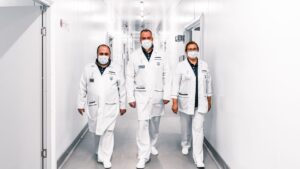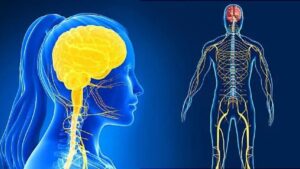Every medical student at Touro College of Osteopathic Medicine (TouroCOM) knows the usual academic giants—Anatomy & Embryology, Pathology, Neuroanatomy, and Physiology. These courses are notoriously tough and time-consuming. But quietly, in the background, one course is making a big impact on students’ clinical skills and professional development—ICC (Introduction to Clinical Competency).
Often underrated, ICC is proving to be one of the most practical, high-value courses in the first two years of med school. And for many students, it’s a game-changer.
What Is ICC at TouroCOM?
Introduction to Clinical Competency (ICC) is a longitudinal course designed to build the bedside skills, professionalism, and patient communication tools students will need in real-world clinical settings. It’s not about memorizing pathways—it’s about becoming a doctor.
ICC covers:
- Taking patient histories (H&P)
- Performing basic physical exams
- Building clinical reasoning
- Practicing SOAP note writing
- Developing empathy and rapport
- Receiving real-time feedback from standardized patients (SPs) and instructors
Why ICC Deserves More Respect?
While other subjects teach the science of medicine, ICC teaches the art of medicine—and that often gets overlooked. Here’s why students are starting to appreciate it more:
1. Early Clinical Exposure
Unlike traditional lectures, ICC puts students in front of real actors playing patients as early as first year. This builds confidence and reduces anxiety when entering third-year rotations.
2. Skill Integration with Core Courses
Students begin to connect classroom concepts from Physiology, Medical Genetics, or Pathology with clinical symptoms they encounter in ICC sessions. This deepens understanding and improves retention.
3. OSCE Preparation
Objective Structured Clinical Exams (OSCEs) can make or break performance in clinical years. ICC gives students hands-on practice for these high-stakes assessments, long before they count.
4. Professional Identity Formation
Through guided reflection, communication workshops, and real patient simulations, ICC helps students think and act like doctors—not just test takers.
How ICC Compares to Other Key Courses
| Course | Primary Focus | Student Perception |
|---|---|---|
| Anatomy & Embryology | Foundational structure | Demanding, but essential |
| Immunology | Complex defense systems | Often overwhelming |
| Medical Genetics | Inherited disease mechanisms | Niche, but growing in relevance |
| Neuroanatomy | Brain and nerve pathways | Visually and conceptually tough |
| Physiology | Body function systems | Key to understanding pathology |
| Pathology | Disease processes | High-yield but intense |
| Physical Diagnosis | Exam techniques | Practical, hands-on |
| ICC | Clinical application & communication | Underrated but transformative |
| OMM I | Manual therapy techniques | Core to DO training |
| Law & Ethics | Professionalism, legal knowledge | Thought-provoking, underappreciated |
What TouroCOM Students Are Saying About ICC?
Students who used to view ICC as a “filler” course are now seeing its long-term value. Many say it’s where they learned to connect with patients, speak professionally, and feel like future doctors—not just med students buried in books.
Others find that ICC boosts their performance in Physical Diagnosis and OSCEs, giving them a serious edge over peers who didn’t take the course seriously.
Conclusion:
At a school like TouroCOM—where students are trained to become competent, compassionate physicians—a course like ICC is more than just another requirement. It’s the foundation of doctoring.
So while Anatomy and Physiology may get all the spotlight, remember: it’s the quiet confidence from ICC that could define your patient relationships, clinical evaluations, and career success.
In a world where AI can diagnose and apps can analyze, human connection still matters—and ICC teaches you how to master it.
FAQs
Is ICC a graded course at TouroCOM?
Yes. ICC includes evaluations from SP encounters, SOAP note submissions, participation, and professional behavior. It’s typically pass/fail but can impact clerkship prep.
How can ICC help in clinical rotations?
ICC builds core competencies like history taking, physical exam techniques, and professional communication—skills used daily in rotations, clerkships, and residency interviews.
Does ICC overlap with Physical Diagnosis?
Yes, there is overlap, but ICC focuses more on communication, clinical reasoning, and real-time patient interaction, while Physical Diagnosis is more technique- and system-focused.
Can excelling in ICC improve OSCE scores?
Absolutely. ICC prepares students with the structure and feedback needed to perform well in OSCEs and future clinical encounters.




